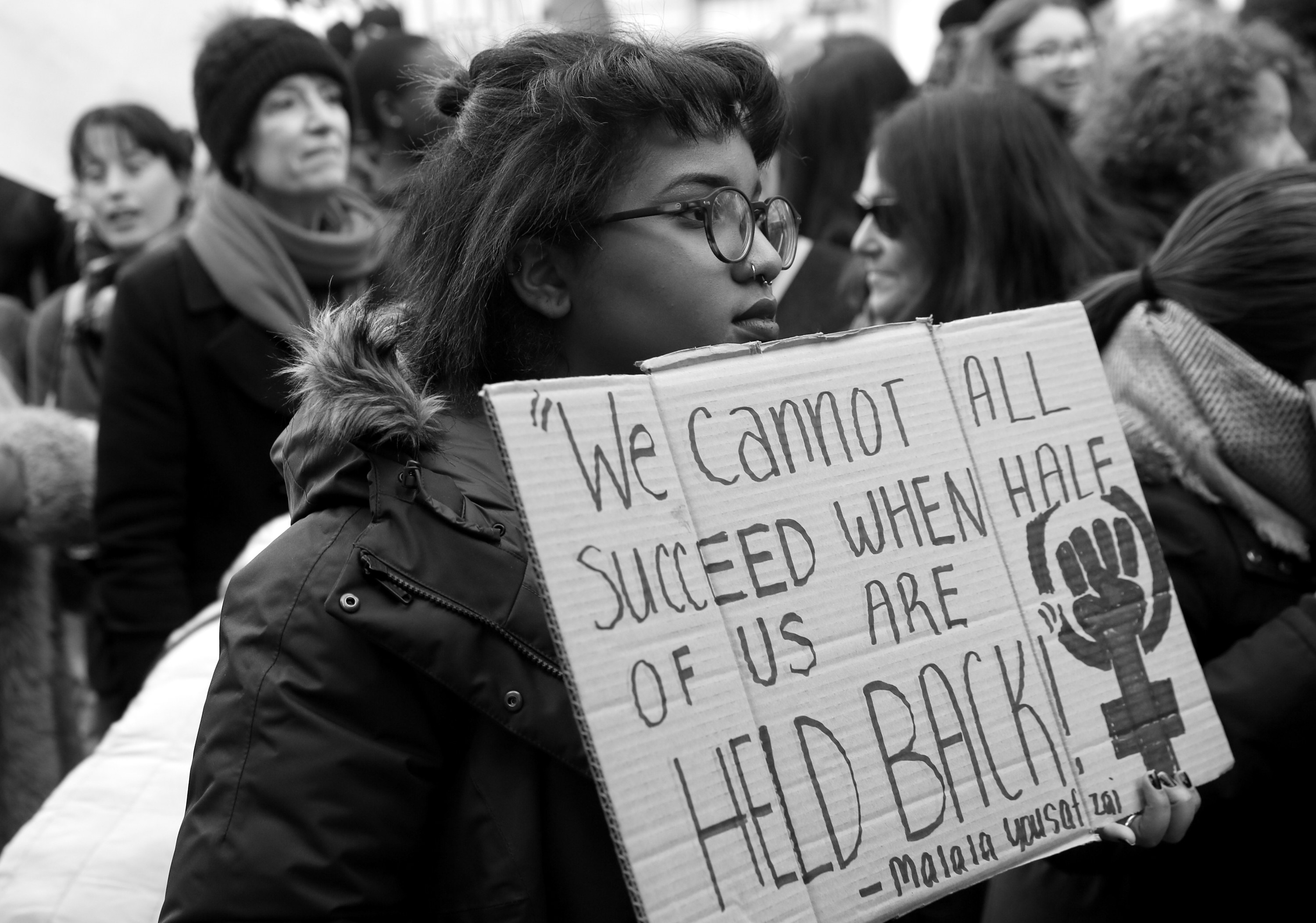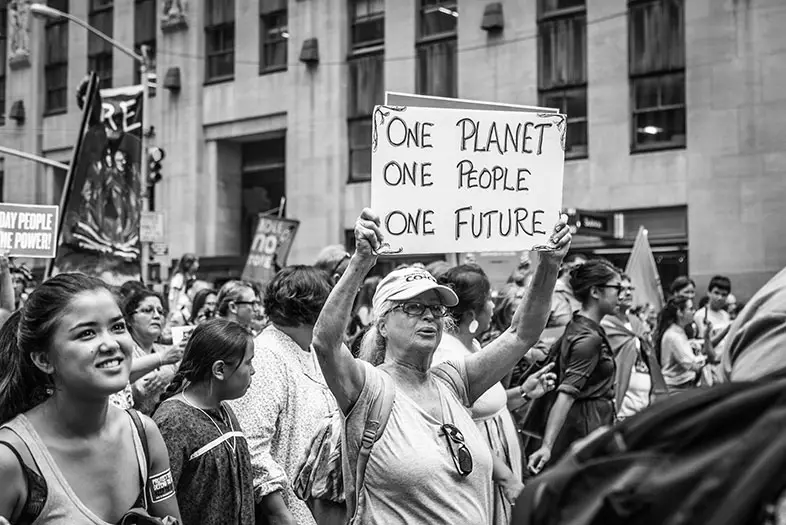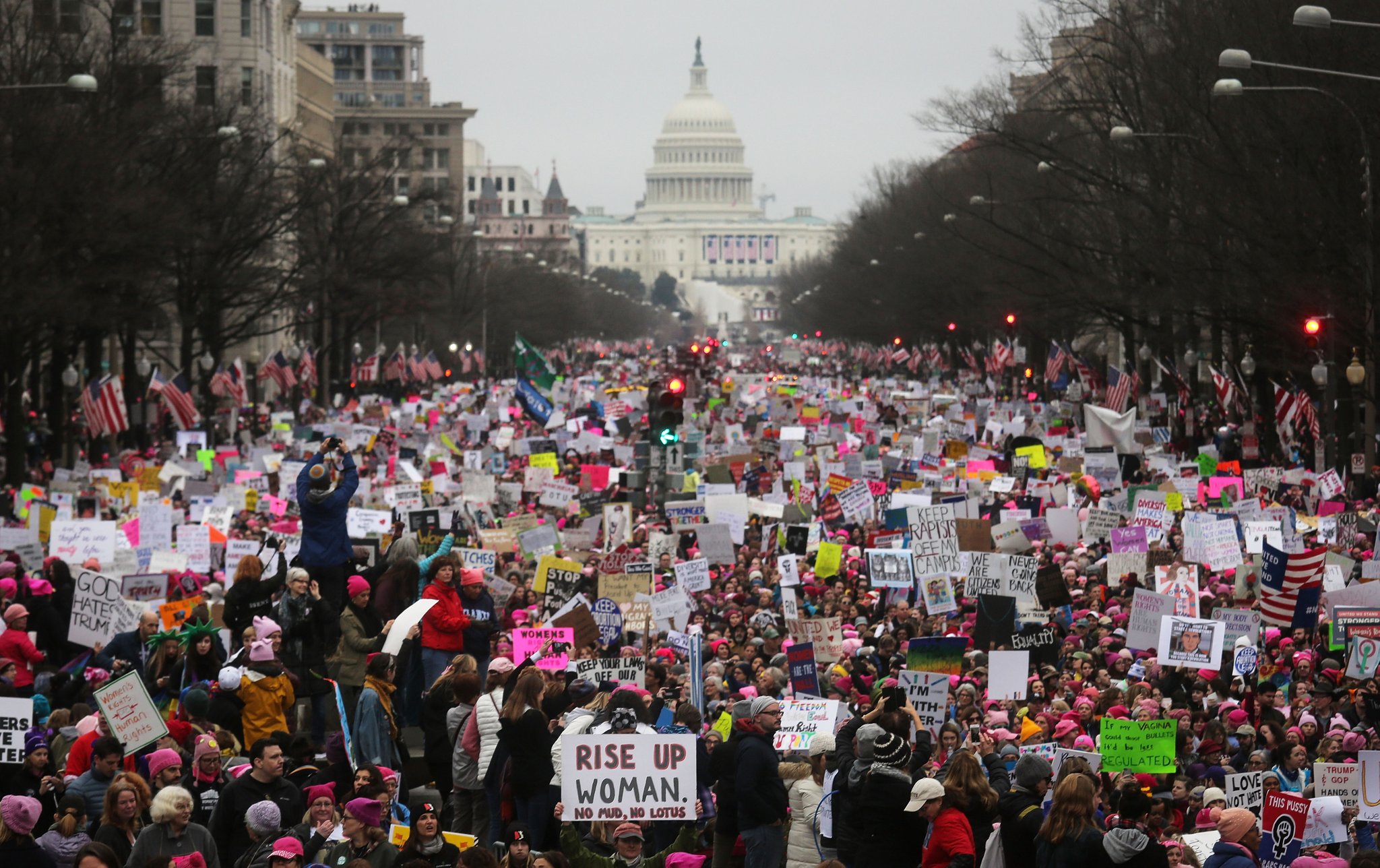Race and The Women’s March
With thousands of Americans marching in protest of inequality and unfair treatment, who is really being represented?
By Shannon Mondesir, Brooklyn College
January 21, 2017, was a legendary day marking an act of protest and resilience across the United States.
It was the Million Women March on Washington, an event in which thousands upon thousands of women across the country marched with various picket signs that demanded rights and equality, portrayed female genitalia in vibrant colors and displayed chants encouraging the unification of women and love for all.
Some estimates hold that 250,000 people participated in the New York City march, with nearly double that amount in Washington and thousands in other cities as well. If you were on any social media that day, your timeline was most likely laden with pictures and videos of women parading down the streets, filled with the high of liberty and the freedom to express themselves as women.
Let’s be honest, though, with the positives comes the negatives, and there were definitely negative aspects of the event, negative enough to be an extremely big deal.
Keep in mind that no one is saying, by any means, that this wasn’t a remarkable day. In fact, it is possibly one of the most profound days of 2017.
Though, amongst the gushing of girl power and calling out of men for their sexist, frail masculine egos, there were some citizens who expressed anger and annoyance towards the event. Sure, a women’s march is absolutely necessary, and there most definitely needs to be a protest against the trials and tribulations that women face on a daily basis; however, there were many women who felt omitted in these demonstrations, specifically black women.

When it comes to the philosophy of feminism, there remains an ongoing battle between black and white women. By definition, feminism is the advocacy of women’s rights on the basis of the equality of the sexes. The issue is that, by this definition, feminists, or white feminists to be exact, do not seem to be applying this meaning to other races.
You will often find that the misfortunes of the black woman are often left ignored and neglected. While white feminists fight strongly for the right to equal pay and the right to abort a child, black women suffer from the systematic inequality that this country forces upon them, and are subjected to homelessness, poverty and violence within their communities.
While white feminists brandish signs of their female anatomy, exhibiting physical assets that they obviously possess, they completely ignore the real issues. This is not to say that the issues of the white woman are of any less importance than the black woman, which goes back to the definition of feminism and why it has been wrongly practiced.
The point is that all women must fight for the issues of all women, not solely the issues of one group of people. The fact of the matter is that not every woman shares the same problems. Heck, not every woman shares the same anatomy (although I suppose this may be a matter of opinion).
White feminists praise and celebrate the ever-so-famous Susan B. Anthony, the women’s rights activist that paved the way for the women’s rights movement of the nineteenth century, though no one seems to recall that when Anthony was advocating for women’s rights, she did not include the black woman in her speeches. Black women weren’t of any importance to her, and it was the white women she fought for.
In June 2015, police interrupted a pool party and a cop placed a knee on the back of a young black girl, clad in a bathing suit, forcing her to the ground face first. The video was shared on social media, resulting in outrage from people witnessing such a demeaning act to a young black girl, who clearly showed no threat to police.
Where were the feminists then? Isn’t a young girl’s dignity being taken from her enough to fight for her?

Again, let’s be clear, feminism is a fantastic thing, if exercised. To fight for the rights of women who do not go through the issues that you go through is an enlightening and humbling experience, one that should be shared by everyone. Unfortunately, this is not the case. There is heavy suspicion that many black women share, akin to the belief of Audre Lorde, a well-known black womanist, that though white women are below white men, they are comfortable being in a position above all other types of women.
There are women who have argued against the racial complaints regarding the Women’s March:
“Why is everything always about race?”
“Why can’t we admire a great occurrence without race being involved?”
“This is about women, not race.”
The question is this: When can it be about race? When will feminists openly admit that the only issues presented to the public are those of the white upper-middle class? When will feminists fight for the issues of black women, Hispanic women and transgender women? Why is it that the true definition of feminism has not been exercised for all women?
Can you prove that it has?

















